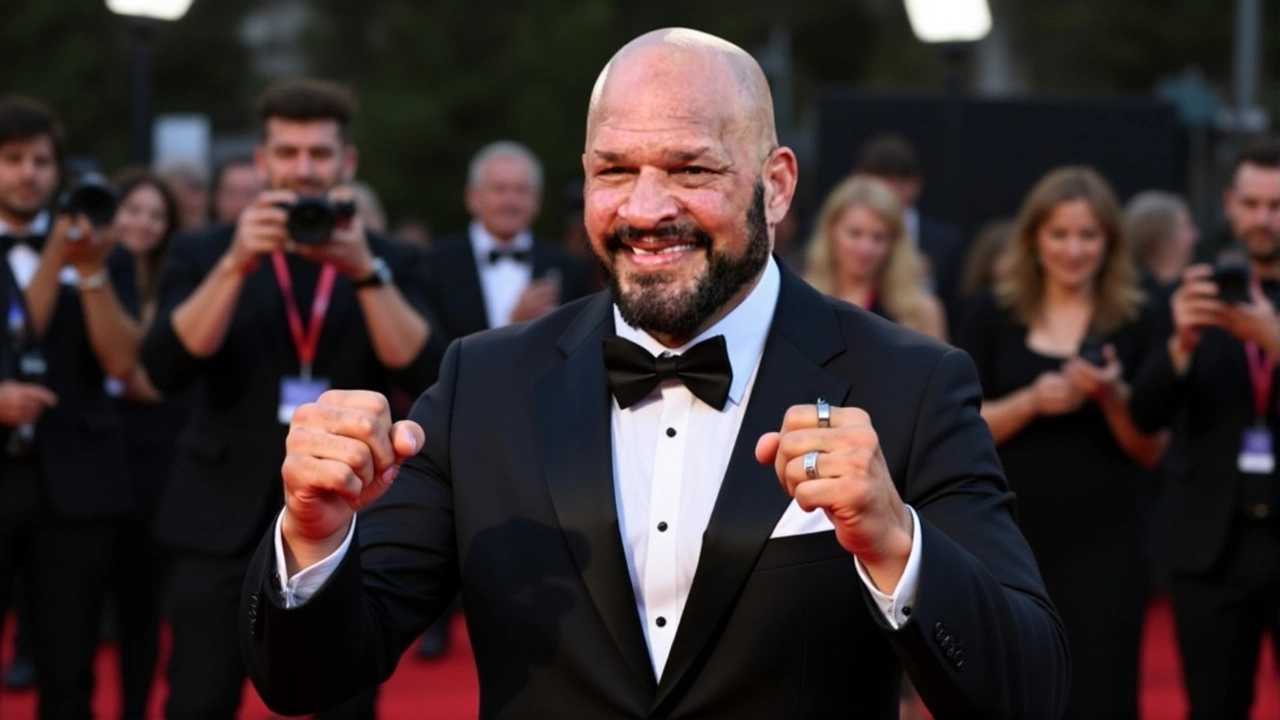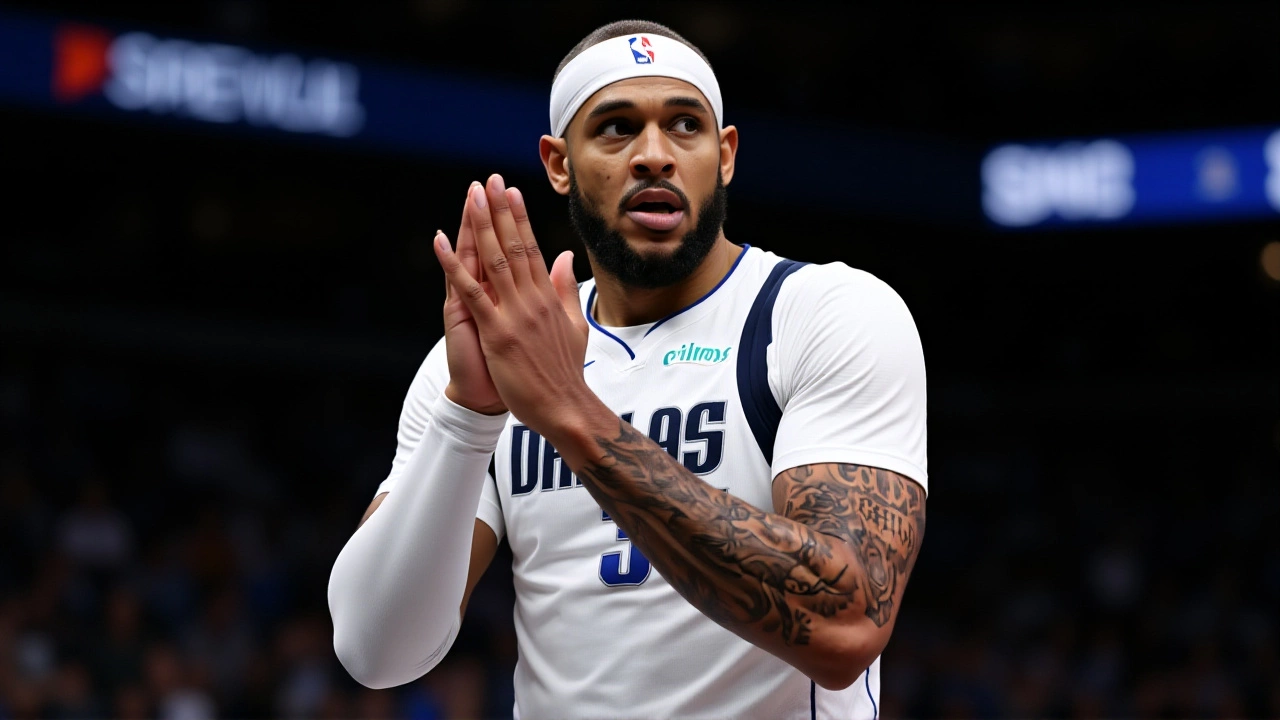When Mark Kerr, UFC Hall of Famer inked a deal with Innovative Artists on September 23, 2025, the whole fight‑world felt the tremor.
The announcement, made by Etan Vlessing of The Hollywood Reporter, came just as the A24 biopic The Smashing Machine was gaining awards‑season buzz.
That buzz isn’t hype for hype’s sake; the film already hit two of the biggest early‑year showcases. It screened at the Venice International Film FestivalVenice on September 2 and then at the Toronto International Film FestivalToronto a week later. The theatrical rollout kicks off on October 3, 2025, in the United States.
Background: Kerr’s Rise and Earlier Media
Before you hear about any contract, you need to know why Kerr is a name that still matters. A dominant force in the late‑1990s, he won two UFC heavyweight tournaments back‑to‑back and later captured an ADCC submission‑grappling title. He was also a standout NCAA wrestler at the University of Notre Dame, where his relentless work ethic earned him the nickname “The Smashing Machine.”
In 2002, HBO released a documentary titled The Smashing Machine: The Life and Times of Extreme Fighter Mark Kerr. That film didn’t shy away from the darker side of the sport – chronicling his battle with painkiller addiction, the pressures of fame, and the isolation that can come with being a combat‑sports icon. It left an indelible mark on the MMA community, setting a template for how fighter stories could be told.
The Smashing Machine: From Documentary to A24 Feature
The new version is anything but a remake. Written and directed by Benny Safdie, it leans heavily into the psychological, using tight‑close framing and a muted colour palette to echo Kerr’s inner turmoil.
What makes this iteration stand out is Dwayne "The Rock" Johnson. Not only is he the lead, but he also co‑produces, putting his own studio‑backed weight behind the project. Johnson spent four hours each day in prosthetic makeup to transform his hulking, grin‑lined persona into Kerr’s lean, scar‑marked frame – a shift that critics are calling his most vulnerable performance yet.
Early screenings describe the film as “an excellent acting showcase” that gives Johnson space to stretch beyond his usual action‑hero toolbox. Some reviewers note the film’s ambition sometimes outpaces its narrative tightness, but the consensus is clear: it’s a serious contender for Oscar conversation in the Best Actor and Best Adapted Screenplay categories.
Innovative Artists' Deal: What It Means for Kerr
Signing with Innovative Artists isn’t just about a new manager; it’s a full‑spectrum representation package. The agency will handle acting auditions, brand endorsements, licensing deals, public‑speaking gigs, and even merchandising. In other words, Kerr can now monetize everything from a limited‑edition gym‑bag line to cameo appearances in TV dramas.
Industry analysts say this mirrors a broader shift. As more athletes see their life stories become cinematic, agencies are packaging them like classic Hollywood talent. Think of former NFL star Peyton Manning’s post‑retirement brand deals – only now the vehicle is a biopic rather than a commercial.
The timing is strategic. With festival buzz at its peak and a slated October release, Kerr can ride the wave of public interest. Early data from ticket‑pre‑sales in major markets like Los Angeles and New York suggest the film could cross the $30 million mark domestically in its opening weekend, a figure that will inevitably trickle down to Kerr’s endorsement negotiations.
Johnson’s Transformation and Oscar Hopes
Johnson’s involvement goes deeper than a paycheck. By stepping behind the camera as a producer, he’s signaling a pivot toward prestige projects. The actor‑producer has long hinted at wanting an Oscar; this role offers a plausible path.
During a press junket in Los Angeles, Johnson admitted that the makeup process felt “like stepping into another person’s skin for the first time.” He added that the physical demands of mimicking Kerr’s wrestling stance were “a full‑body workout that left me sore for days.” The commitment has already sparked conversations on social media, with fans posting side‑by‑side comparisons of the two athletes and debating whether Johnson can truly capture Kerr’s “quiet intensity.”
Industry Perspective: Athletes in Hollywood
What’s happening with Kerr is part of a larger trend. In the past five years, athletes from basketball, tennis, and even esports have landed multi‑year deals with talent agencies. The rationale is simple: compelling personal narratives translate into box‑office draws and brand equity.
“When a story like Kerr’s hits the big screen, it’s not just about the fights,” says Marilyn Ruiz, senior vice‑president of talent development at Creative Artists Agency. “It gives us a platform to explore mental‑health advocacy, entrepreneurial ventures, and cultural influence all at once.”
Critics, however, warn that the market could become saturated. If every former champion gets a Hollywood makeover, the novelty may wear off. For now, Kerr’s unique blend of triumph and tragedy gives the film an authenticity that fans still crave.
Future Outlook
Looking ahead, the partnership between Kerr and Innovative Artists could spawn a slate of spin‑off projects – perhaps a limited series on his NCAA wrestling days, or a documentary sequel focusing on his recovery journey. Meanwhile, Johnson’s production company, Seven Bucks Productions, has already hinted at exploring other combat‑sport stories, suggesting Kerr’s film could be the first of a new sub‑genre.
All eyes will be on the October 3 opening. If the film pulls in strong box‑office numbers and racks up award nominations, it will cement the template for future athlete‑centric biopics. And for Mark Kerr, the next chapter may finally let him control his own narrative – both inside and outside the octagon.

Frequently Asked Questions
How will the Innovative Artists deal affect Mark Kerr's future earnings?
The deal gives Kerr a dedicated team to negotiate acting parts, brand endorsements, and licensing. Analysts project that, based on comparable athlete‑turn‑actors, his post‑film earnings could rise by 40‑60% in the first year, especially if the movie lands high‑profile sponsors for a fitness‑app line.
What makes Dwayne Johnson's portrayal of Mark Kerr different from earlier documentaries?
Unlike the 2002 HBO documentary, which relied on archival footage and interviews, Johnson’s performance is dramatized with a full‑bodied physical transformation. He spends four hours daily in prosthetic makeup and trains in wrestling techniques to mirror Kerr’s precise movements, lending a visceral realism that earlier recountings lacked.
Why is A24 investing in an MMA biopic now?
A24 has chased gritty, character‑driven stories in recent years, from indie dramas to true‑crime sagas. With mixed‑martial‑arts popularity soaring—UFC’s 2024 viewership hit a record 10 million weekly viewers—A24 sees a timely opportunity to tap into a built‑in fan base while delivering a narrative about mental health and redemption.
What are critics saying about Benny Safdie's direction style in 'The Smashing Machine'?
Critics note Safdie’s signature handheld camera work and tight close‑ups, which intensify the feeling of being trapped inside the octagon and Kerr’s mind. While some say the pacing feels uneven, most agree his focus on psychological nuance elevates the film beyond a standard sports biopic.
When can audiences expect to see the film in the United States?
Theatrical release opens nationwide on October 3, 2025, with early screenings in New York, Los Angeles, and Chicago. A limited IMAX run is slated for major markets, followed by a broader rollout the following week.






